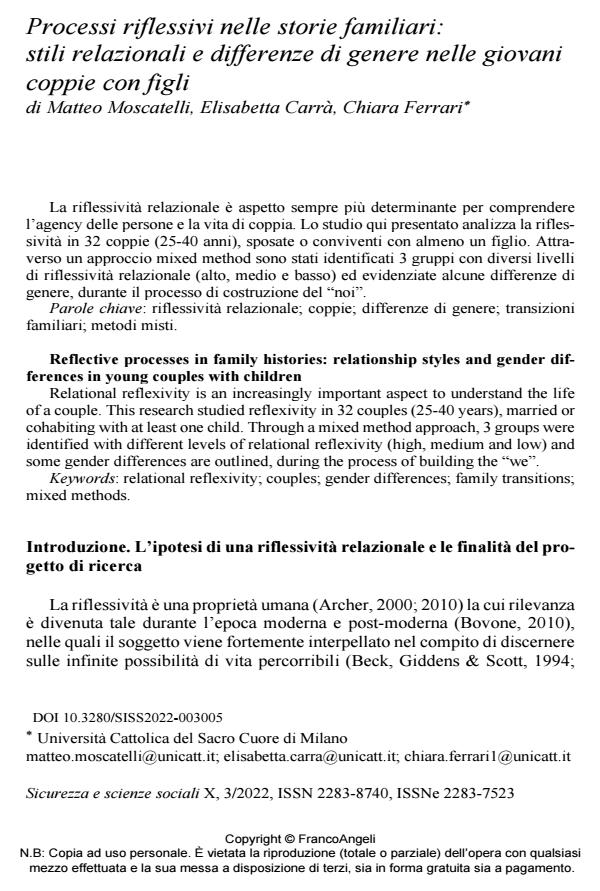Reflective processes in family histories: relationship styles and gender differences in young couples with children
Journal title SICUREZZA E SCIENZE SOCIALI
Author/s Matteo Moscatelli, Elisabetta Carrà, Chiara Ferrari
Publishing Year 2022 Issue 2022/3
Language Italian Pages 17 P. 62-78 File size 269 KB
DOI 10.3280/SISS2022-003005
DOI is like a bar code for intellectual property: to have more infomation
click here
Below, you can see the article first page
If you want to buy this article in PDF format, you can do it, following the instructions to buy download credits

FrancoAngeli is member of Publishers International Linking Association, Inc (PILA), a not-for-profit association which run the CrossRef service enabling links to and from online scholarly content.
Relational reflexivity is an increasingly important aspect to understand the life of a couple. This research studied reflexivity in 32 couples (25-40 years), married or cohabiting with at least one child. Through a mixed method approach, 3 groups were identified with different levels of relational reflexivity (high, medium and low) and some gender differences are outlined, during the process of building the "we".
Keywords: relational reflexivity; couples; gender differences; family transitions; mixed methods.
Matteo Moscatelli, Elisabetta Carrà, Chiara Ferrari, Processi riflessivi nelle storie familiari: stili relazionali e differenze di genere nelle giovani coppie con figli in "SICUREZZA E SCIENZE SOCIALI" 3/2022, pp 62-78, DOI: 10.3280/SISS2022-003005